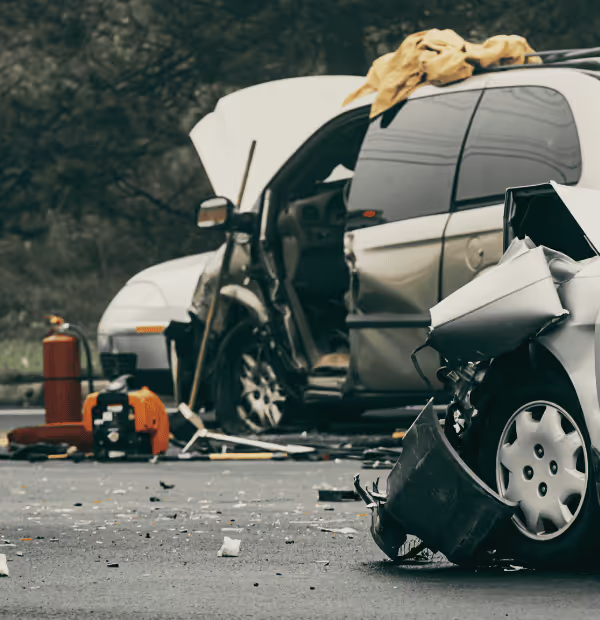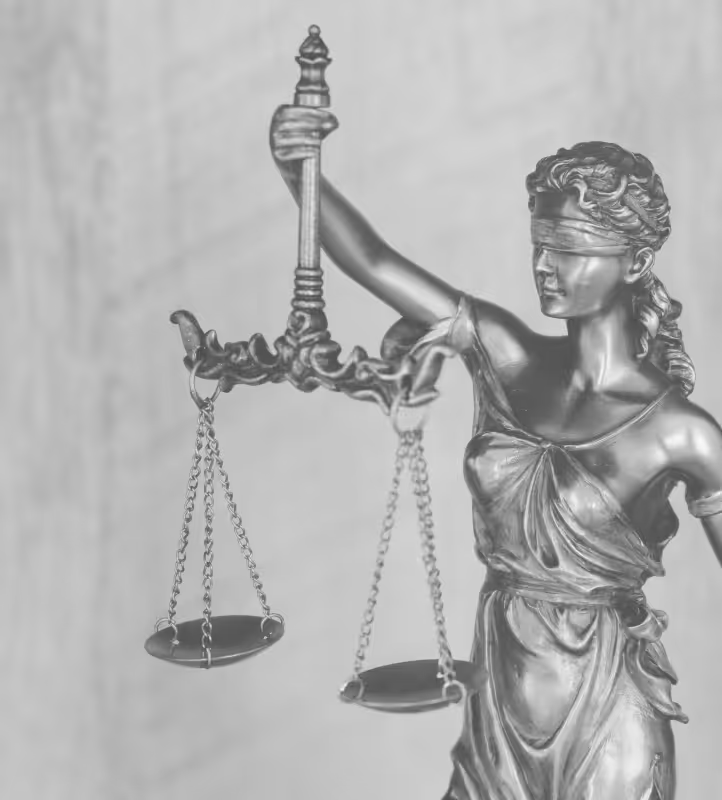DUI Offences

Tested Positive for Drugs While Driving? Here is What You Need to Know
In New South Wales, driving with drugs such as THC (marijuana), MDMA (ecstasy), amphetamines (ice), or cocaine in your system is illegal, regardless of whether you appear to be impaired. With random roadside drug tests and strict penalties, being charged with drug driving can have lasting consequences.
Key points:
- Presence, not impairment, is what matters. The prosecution only needs to prove drugs were in your system
- A positive roadside test is followed by a lab analysis before penalties are issued
- Police can issue on-the-spot fines and a three-month licence suspension for a first offence
If you’ve been charged, Brightstone Defence Criminal Lawyers can provide expert guidance and fight to achieve the best possible outcome for your case.
What is a DUI Offence?
Driving Under the Influence (DUI) is a serious criminal offence in New South Wales, targeting drivers who operate a motor vehicle while affected by alcohol, illegal drugs, or prescription medication. Unlike offences based on a specific blood alcohol concentration (BAC), DUI is based on observable impairment, such as erratic driving, slurred speech, or poor coordination.
In NSW, DUI is an offence under the Road Transport Act 2013 (NSW). Police may charge a person with DUI even if no BAC reading or drug test is taken, or if the person refuses to provide a sample.
Drugged driving
Drugged driving is a specific type of offence under Section 111 of the Road Transport Act 2013 (NSW). It occurs when a motor vehicle is driven while a prescribed illicit drug is present in your oral fluid, blood or urine. Commonly tested substances include
- THC (cannabis)
- MDMA (ecstasy)
- Methamphetamines (ice)
- Cocaine
Unlike DUI charges, there is no need to prove the driver was affected or impaired as only the presence of the drug is sufficient for a charge.
How is DUI Different From PCA?
Many people confuse DUI with PCA (Prescribed Concentration of Alcohol) offences. The key difference is:
- PCA charges are based on measurable blood alcohol levels from breath, blood, or saliva tests
- DUI charges rely on observable signs that a person is under the influence of a substance, regardless of test results
A person can be charged with DUI for being under the influence of:
- Alcohol
- Illicit drugs (e.g., cannabis, cocaine, MDMA)
- Prescription medication (e.g., sleeping tablets, opioids)
- Over-the-counter drugs causing drowsiness or affecting coordination
When Can Police Charge You With DUI?
Police may lay DUI charges if they believe, based on their observations, that a driver is affected by drugs or alcohol to such an extent that they are incapable of proper control of a vehicle.
Common indicators include:
- Smell of alcohol
- Slurred speech
- Bloodshot or glazed eyes
- Poor balance or unsteady walking
- Confused or aggressive behaviour
- Dangerous or erratic driving
Police may also request a sobriety assessment, drug wipe test, or blood/urine sample. Refusing to comply can result in additional charges.
Elements the Prosecution Must Prove
To secure a conviction, the prosecution must prove:
- You drove (or attempted to drive) a motor vehicle
- A prescribed illicit drug was present in your system at the time
- The presence was confirmed through laboratory analysis following a roadside test
Possible Defences
While DUI is a serious charge, a legal defence may be available depending on the circumstances:
- Insufficient evidence: The prosecution must prove beyond reasonable doubt that the driver was intoxicated and unable to control the vehicle properly
- Unlawful police conduct: If police acted unlawfully in stopping or detaining the driver, evidence may be excluded
- Involuntary intoxication: In rare cases, if the driver unknowingly consumed a drug or substance, a defence may apply
- Medical condition: Symptoms mimicking intoxication may stem from health issues (e.g., neurological conditions, diabetes)
An experienced traffic or criminal lawyer can review the case and advise whether it is better to defend the charge or plead guilty.
Potential Penalties
Penalties for DUI offences depend on the driver's criminal history and whether it is a first or repeat offence. DUI is treated seriously due to the heightened risk it poses to public safety.
For a first offence:
- Up to 18 months imprisonment
- Fine of up to $3,300
- Minimum disqualification of 6 months (longer for serious cases)
- Potential for Mandatory Alcohol Interlock Program
For a second or subsequent offence:
- Up to 2 years imprisonment
- Fines up to $5,500
- Licence disqualification of at least 9 months
- Mandatory interlock device installation
The court may also record a criminal conviction, which can impact future employment, insurance, and overseas travel.

Legal Process
& Options
After a roadside drug test, your sample is sent for laboratory analysis. If the result is positive, you may receive a court attendance notice or penalty notice. You can choose to accept the penalty or contest the charge in court.
DUI charges in NSW carry serious legal, personal, and financial consequences. Courts treat these offences harshly because of the public safety risks involved. If you are facing a DUI charge, it is important to get legal advice early to understand your options and possible outcomes.
Pleading
Not Guilty
If you plead not guilty, we will thoroughly prepare your defence strategy. This may involve:
- Challenging the reliability of the drug test
- Arguing issues of timing or procedure
- Raising a genuine mistake of fact or questioning whether you were driving
Our experienced team will review all evidence, dispute improper police conduct or testing, and defend your rights every step of the way.
Pleading
Guilty
If you plead guilty, the matter proceeds to sentencing. Entering an early guilty plea may:
- Reduce legal costs and penalties
- Show remorse, which can lead to leniency
- Increase your chances of receiving a Section 10 Dismissal or Conditional Release Order (CRO), avoiding a criminal record
Before pleading guilty, consult Brightstone Defence Criminal Lawyers to fully understand the impact and explore your chances for a non-conviction outcome.
PCA offences are based on your BAC level exceeding the legal limit, whereas DUI offences are based on observed impairment or behaviour. It can apply to alcohol, illicit drugs, or prescription medication. In some cases, a person may be charged with both.
DUI is based on police observations and evidence, such as:
- Slurred speech or unsteady walking
- Blood or drug tests
- Dangerous driving
Your personal perception is not enough; the court relies on objective evidence.
Refusing a test is a criminal offence with penalties that may equal or exceed DUI penalties. You can face:
- Fines
- Licence disqualification
- Imprisonment
- Possibly. Police may:
- Suspend your licence on the spot
- Issue a Notice of Suspension within 48 hours
The court may also impose a further disqualification.
A Section 10 or CRO allows the court to:
- Find you guilty, but
- Not record a conviction
This avoids a criminal record and licence disqualification but is not guaranteed.
- A criminal conviction for DUI can remain on your record indefinitely, affecting employment, insurance, and travel. Non-conviction outcomes like a Section 10 or CRO can prevent this.
- Driving under the influence of prescription medication is an offence if it affects your ability to control a vehicle. Always check warnings on your medication and consult a doctor if unsure.
- Seek legal advice as soon as possible. An experienced lawyer can review your case, advise on your options, and help minimise potential penalties.
Facing a DUI charge can have serious legal, personal, and financial consequences. It is crucial to seek expert legal advice as early as possible. Brightstone Defence Criminal Lawyers provide professional guidance, thoroughly review your case, and develop a tailored defence strategy aimed at achieving the best possible outcome. Contact us immediately to protect your rights, understand your options, and receive strong representation throughout the legal process.
PCA offences are based on your BAC level exceeding the legal limit, whereas DUI offences are based on observed impairment or behaviour. It can apply to alcohol, illicit drugs, or prescription medication. In some cases, a person may be charged with both.
DUI is based on police observations and evidence, such as:
- Slurred speech or unsteady walking
- Blood or drug tests
- Dangerous driving
Your personal perception is not enough; the court relies on objective evidence.
Refusing a test is a criminal offence with penalties that may equal or exceed DUI penalties. You can face:
- Fines
- Licence disqualification
- Imprisonment
- Possibly. Police may:
- Suspend your licence on the spot
- Issue a Notice of Suspension within 48 hours
The court may also impose a further disqualification.
A Section 10 or CRO allows the court to:
- Find you guilty, but
- Not record a conviction
This avoids a criminal record and licence disqualification but is not guaranteed.
- A criminal conviction for DUI can remain on your record indefinitely, affecting employment, insurance, and travel. Non-conviction outcomes like a Section 10 or CRO can prevent this.
- Driving under the influence of prescription medication is an offence if it affects your ability to control a vehicle. Always check warnings on your medication and consult a doctor if unsure.
- Seek legal advice as soon as possible. An experienced lawyer can review your case, advise on your options, and help minimise potential penalties.
Facing a DUI charge can have serious legal, personal, and financial consequences. It is crucial to seek expert legal advice as early as possible. Brightstone Defence Criminal Lawyers provide professional guidance, thoroughly review your case, and develop a tailored defence strategy aimed at achieving the best possible outcome. Contact us immediately to protect your rights, understand your options, and receive strong representation throughout the legal process.
SUCCESS CASES & ARTICLES
Brightstone Defence delivers focused criminal defence services year-round and has built a strong track record of successful outcomes.
Meet our lawyers
WORLD CLASS
REPRESENTATION
100+ 5 Star Reviews
Personalised legal strategies tailored to each case
Recognised leaders in criminal defence law
Free initial consultation and case evaluation
Proven success in high-stakes and complex cases
Get AN instant estimated Quote
and a free consultation session
Facing criminal charges? Our experienced criminal defence lawyers are here to help. Book your free consultation now to discuss your case and understand your options.







